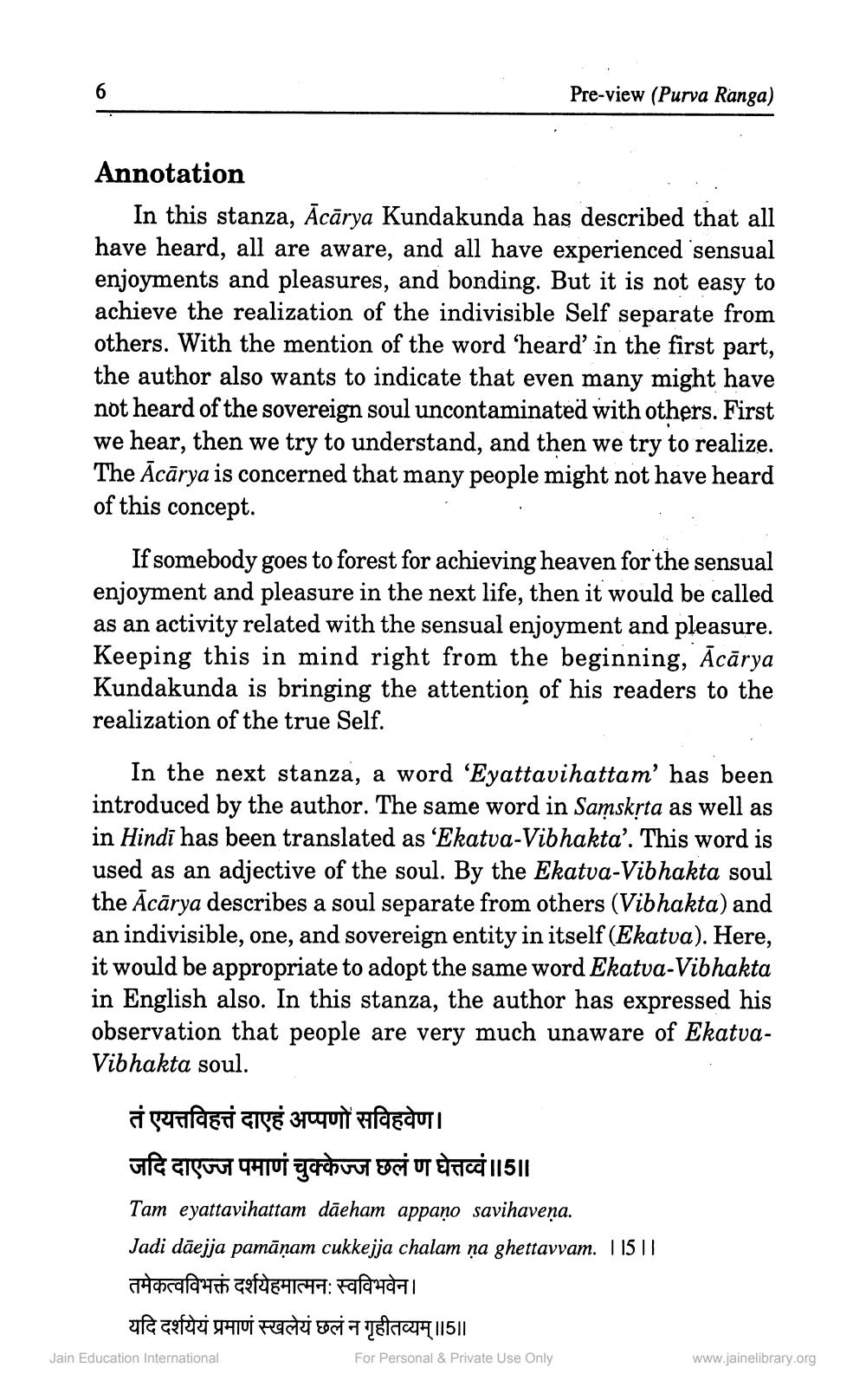________________
Pre-view (Purva Ranga)
Annotation
In this stanza, Ācārya Kundakunda has described that all have heard, all are aware, and all have experienced sensual enjoyments and pleasures, and bonding. But it is not easy to achieve the realization of the indivisible Self separate from others. With the mention of the word 'heard' in the first part, the author also wants to indicate that even many might have not heard of the sovereign soul uncontaminated with others. First we hear, then we try to understand, and then we try to realize. The Ācārya is concerned that many people might not have heard of this concept.
If somebody goes to forest for achieving heaven for the sensual enjoyment and pleasure in the next life, then it would be called as an activity related with the sensual enjoyment and pleasure. Keeping this in mind right from the beginning, Ācārya Kundakunda is bringing the attention of his readers to the realization of the true Self.
In the next stanza, a word 'Eyattavihattam' has been introduced by the author. The same word in Samskrta as well as in Hindi has been translated as ‘Ekatva-Vibhakta'. This word is used as an adjective of the soul. By the Ekatva-Vibhakta soul the Ācārya describes a soul separate from others (Vibhakta) and an indivisible, one, and sovereign entity in itself (Ekatva). Here, it would be appropriate to adopt the same word Ekatva-Vibhakta in English also. In this stanza, the author has expressed his observation that people are very much unaware of EkatvaVibhakta soul.
तं एयत्तविहत्तं दाएहं अप्पणो सविहवेण। जदि दाएज्ज पमाणं चुक्केज्ज छलं ण घेत्तव्वं ।।5।। Tam eyattavihattam dāeham appaņo savihaveņa. Jadi dāejja pamāṇam cukkejja chalam ņa ghettavvam. 11511 तमेकत्वविभक्तं दर्शयेहमात्मन: स्वविभवेन। यदि दर्शयेयं प्रमाणं स्खलेयं छलं न गृहीतव्यम्।।5।।
Jain Education International
For Personal & Private Use Only
www.jainelibrary.org




